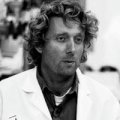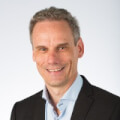Feb
14
2023
On demand
Implementing a closed cell therapy manufacturing process through strategic collaboration
Tuesday 08:00 PST / 11:00 EST / 16:00 GMT / 17:00 CET

The need for standardization of cell therapy manufacturing continues to be a critical driver of technological advancement and investments. Implementation of a scalable, integratable workflow can minimize open processes and reduce manual touchpoints - ultimately reducing manufacturing failures. New innovations in closed, modular, cell therapy specific instrumentation enable the development of robust and reproducible, end-to-end manufacturing processes for commercial applications.
In this webinar, industry leaders will discuss solutions for standardizing your manufacturing process and how strategic collaborations can help streamline the transition through the commercialization pipeline.
- Recent technologies designed for closed, automatable, cell isolation and activation, cell modification and cell processing.
- The impact of industry collaborations on streamlining process optimization for commercialization.
You have registered for this webinar
You might also like

Strategic human raw material selection for cell therapy manufacturing
Daniel Benitez-Ribas
16 July 2025
Watch

Collaboration in action: decentralized manufacturing to expand patient access in cell therapy
L Buckler, I Gaudet, A Bryan et al.
13 November 2025
Watch

Developing streamlined, flexible cell therapy process workflows: from upstream to formulation and fill-finish operations
Namritha Ravinder, Carl Dargitz
25 February
in 33
Days

Viral vector manufacturing: optimization through culture, QC and regulatory standards
J Cody, M Sharma, G Gayosa
23 September 2025
Watch

Closing the loop: eliminating open handling risks in CGT manufacturing
E Woods, S Werner, J Pileggi
9 October 2025
Watch



